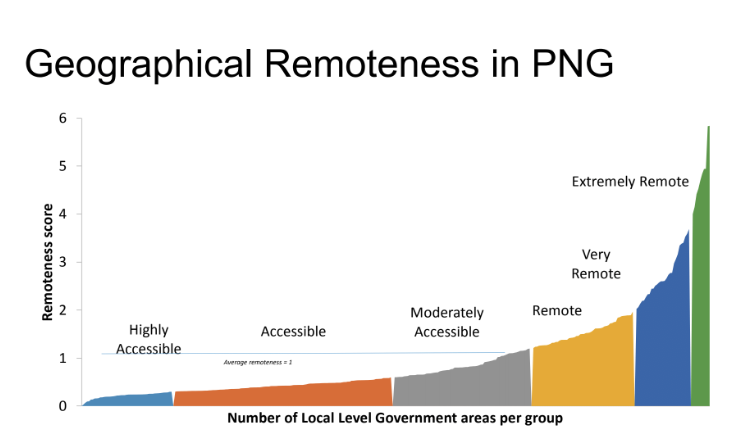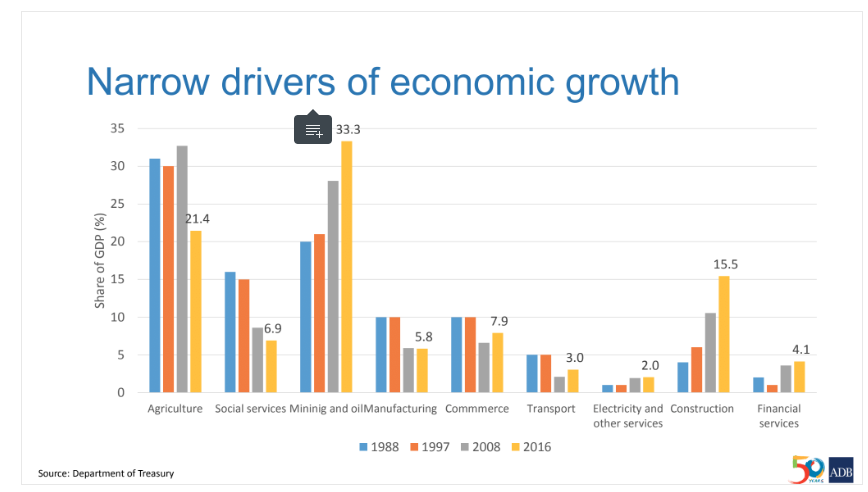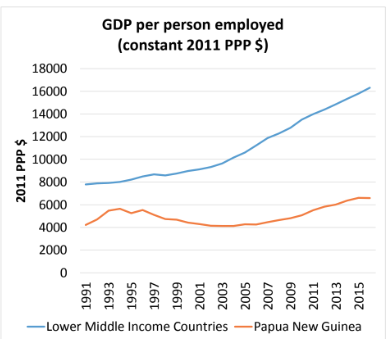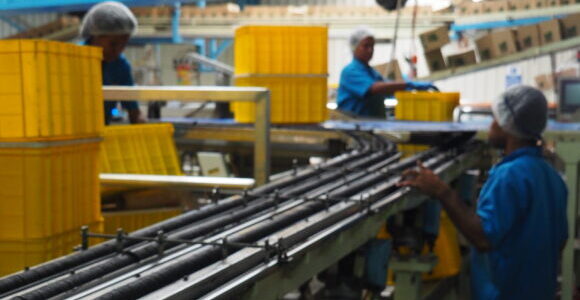ADB has started its 10 year investment in Highlands Highway, says Country Director
The Asian Development Bank has begun its decade-long US$1 billion investment in the Highlands Highway, according to David Hill, the bank’s Country Director for PNG. He says the ADB is also planning significant investment in the health and civil aviation sectors.

The ADB’s David Hill Source: Business Advantage International
Hill told the Business Advantage Papua New Guinea Investment Conference last month that the plan is to rehabilitate 430 kilometres of highway between Mount Hagen and Lae. He says it is a multi-tranche financing facility.
‘The first tranche is for $US360 million. Procurement is now allowed and we have some significant packages.
‘We want to do large civil works and consultancy packages to attract competitors. There are economies of scale—in terms of doing things bigger. Because procurement takes a long time.
‘This is our flagship project for the next 10 years in the transport sector.’
‘We follow some rigorous procurement procedures so it is much easier to do bigger packages and roll it out. Hopefully, we will get better quality contractors and consultants.’
Hill said the executing agency is the PNG Department of Works. The government of Australia is a co-financer of the first tranche.
‘This is our flagship project for the next 10 years in the transport sector.’

PNG has many remote regions Source: ADB
Financing
Hill said the ADB has an advantage in being able to make long term multi-year financing investment programs.
‘The financing is there. It provides some predictability and yet flexibility. Once the program starts, if things are not going well, we can adjust the design so that it is more effective so we make sure the money is well spent.
‘In transport, we have built about 600 kilometres of roads.’
Hill said the ADB’s focus is in the transport sector, the energy sector and, more recently in public sector management and the health sector.
‘In the next three years, we have over US$1 billion available for financing. We are really scaling up the amount of financing we are making available to Papua New Guinea.
‘In transport, we have built about 600 kilometres of roads. We have disbursed about US$180 million principally in hydropower generation, transmission and distribution.
‘We have a very successful civil aviation development investment program where we have been upgrading the terminals, the runways and the safety features of the airports in the country.
‘The bank is also in the concept stage for a proposed US$600 million power sector project focusing on renewable energy sources.’
Hill said the ADB is assisting in redeveloping Jacksons Airport and upgrades of regional airports. It also has a microfinance project, mainly in the Western and Sepik provinces.
The bank is also in the concept stage for a proposed US$600 million power sector project focusing on renewable energy sources: hydro-power, wind, bio-mass, thermal, solar.
‘We are looking at doing isolated grids where there is demand. We are looking for development partners to support us in this effort.’

PNG’s drivers of economic growth Source: ADB, Department of Treasury
Strategy
Hill said PNG has relatively narrow drivers of economic growth.
‘The two main sectors are the agriculture and mining sector. The extractive sector plays a significant role in country’s economy, but it has a more modest impact on government revenue and employment.
‘The sector is estimated to employ only 9-13,000 people out of a population of 7.3 million.’
‘The initial problem is connectivity.’
Hill said 85 per cent of the population in PNG is involved in agriculture.
‘The stumbling block standing in the way of a robust agro industry is the means to increase efficiencies throughout the value chain to make production and distribution more competitive.
‘Part of the problem is a lack of refining of agriculture products. But the initial problem is connectivity: getting the products to a processing plant or a market.’
Exports
Hill said PNG exports most of its products in raw form; the challenge is to move up the value chain.
‘As government revenue is reinvested into infrastructure projects and domestic spending power expands, the business case for downstream investment will improve.
‘Should on-going economic reforms improve conditions and the ease and predictability of doing business, PNG could emerge as a regional destination for processing of mid-stream and finished products.’

PNG’s GDP per person employed Source: World Development Indicators






